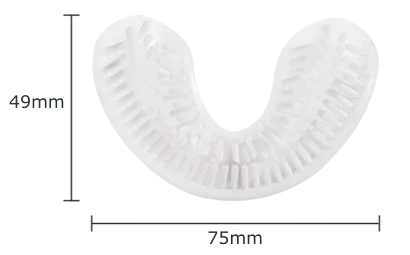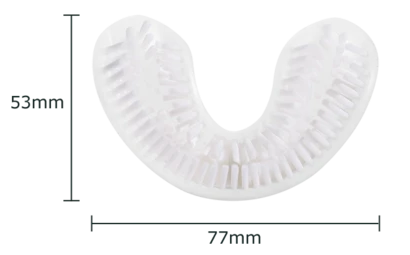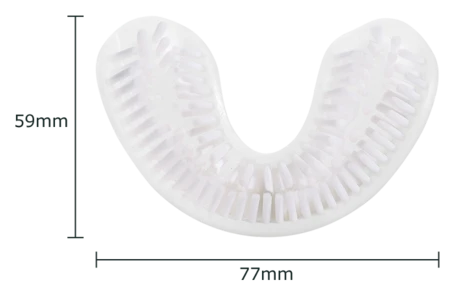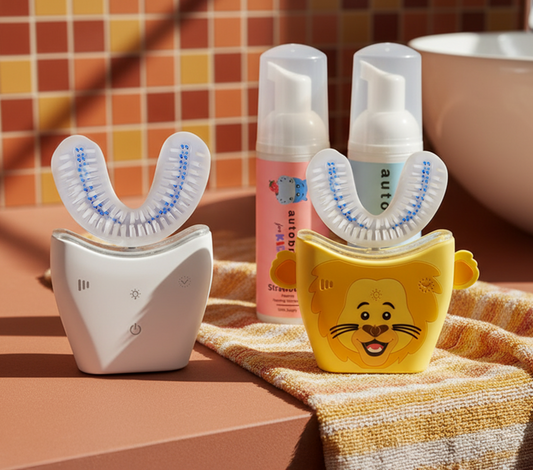
Should I Brush My Baby's Teeth?
Oral hygiene is an essential part of a baby's overall health. It is essential to keep your baby's mouth clean from an early age to prevent any oral health problems. One of the most common questions that parents ask is when they should start brushing their baby's teeth. In this article, we will explore the different factors to consider when it comes to brushing your baby's teeth.
When Do Babies Get Teeth?
The first step in knowing when to start brushing your baby's teeth is to understand when they get teeth. Most babies begin teething between the ages of 4 to 6 months. However, it is not uncommon for some babies to start teething as early as three months or as late as one year. The bottom front teeth usually appear first, followed by the top front teeth.
Teething can be a difficult time for babies and parents alike. The process of teeth breaking through the gums can be painful and uncomfortable for babies, and can lead to irritability, drooling, and disrupted sleep patterns. It is important for parents to be patient and understanding during this time, and to offer comfort and relief to their little ones.
There are several things that parents can do to help ease the discomfort of teething. One option is to offer a teething ring or other safe object for the baby to chew on. This can help to relieve pressure on the gums and provide a soothing sensation. Another option is to gently massage the baby's gums with a clean finger or a damp cloth. This can help to stimulate blood flow and ease the pain of teething.

In addition to providing comfort during the teething process, parents need to start taking care of their baby's teeth as soon as they begin to appear. This means brushing the teeth twice a day with a soft-bristled brush and a small amount of fluoride toothpaste. It is also important to avoid giving babies sugary drinks or snacks, as these can contribute to tooth decay.
Overall, understanding when babies get teeth is an important first step in ensuring good oral health for your little one. By offering comfort during the teething process and establishing good dental habits early on, parents can help to set their babies up for a lifetime of healthy smiles.
When Do Babies Start Teething?
Teething is a significant milestone in your baby's growth and development. It's a sign that your little one is growing up and moving toward solid foods. But, when do babies start teething? The answer to this question is not straightforward, as it varies from baby to baby.
On average, babies start teething between four and six months of age. However, some babies may start teething as early as three months, while others may not start until they are 12 months old. It's important to remember that every baby is different, and there is no set timeline for when your baby's teeth will start to come in.

Best Baby Toothbrush 2023
Oral hygiene is essential for babies, and choosing the right toothbrush is crucial to ensure their dental health. The American Dental Association recommends starting brushing your baby's teeth as soon as they appear, which is usually around six months.
When it comes to choosing the best toothbrush for your baby, there are a few things to consider. First, make sure the toothbrush is age-appropriate. For babies between 4 to 24 months, a silicone finger brush is an excellent option. These brushes fit over your finger, making it easy to clean your baby's teeth and gums. They are gentle on your baby's gums and help them get used to the feeling of having their teeth brushed.
For older babies and toddlers, a soft-bristled, small-headed brush will work well. Look for a brush with a non-slip grip that is easy for your child to hold. You can also find toothbrushes with fun characters or designs that will make brushing more enjoyable for your little one. AutoBrush offers fantastic options for toddlers beginning to brush their teeth. The double-sided u shaped brush head makes it nearly impossible to miss a tooth. This is a game changer for parents, as they won't need to worry about their kiddos missing a spot while learning to brush. Even better, the AutoBrush kids toothbrush is clinically proven to brush 27x better than traditional manual toothbrushes.
Another thing to keep in mind when brushing your baby's teeth is they might not understand the concept of spitting out the toothpaste. While small amounts of fluoride are okay, fluoride toothpaste is not safe to swallow. For toddlers, it is recommended to use fluoride-free toothpaste until you can ensure they will not swallow it. AutoBrush offers perfect training toothpaste options available without fluoride, featuring Nano-HAp, and in a variety of kid-friendly flavors.
How to Introduce Teeth Brushing to Your Baby
Introducing teeth brushing to your baby can be a challenge. Here are some tips that can help:
- Start cleaning your baby's mouth before teeth appear. Wipe their gums with a soft, damp cloth after feeding.
- Make brushing your teeth a fun activity that your baby looks forward to.
- Brush in front of a mirror so that your baby can see what you are doing, and it becomes an interactive experience.
- Sing a song or play a game as you brush your baby's teeth.
Remember, consistency is key. The more your baby becomes familiar with the routine, the more comfortable and less challenging it will become.
Signs that Your Baby is Ready for Teeth Brushing
It can be challenging to know when your baby is ready for teeth brushing, especially if their teeth haven't appeared yet. Here are some signs that your baby is ready:
- Your baby is beginning to eat solid foods.
- Your baby's gums are swollen and painful, and they are drooling more than usual.
- Your baby is showing an interest in what you are eating and may try to grab your food.
In conclusion, it's essential to start cleaning your baby's mouth as early as possible to prevent any oral health problems. Once their teeth appear, brushing needs to be done twice a day. Choose an appropriate toothbrush for your baby's age, make it a fun activity, and be consistent. By following these tips, you can help your baby develop good oral hygiene habits that will last a lifetime.














